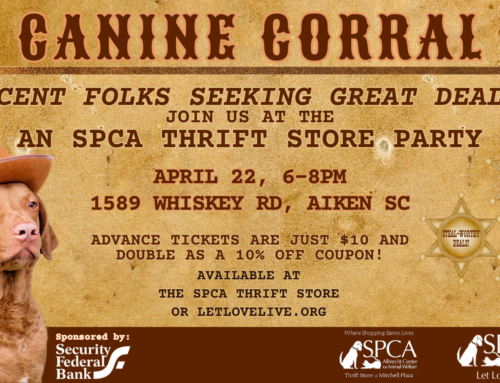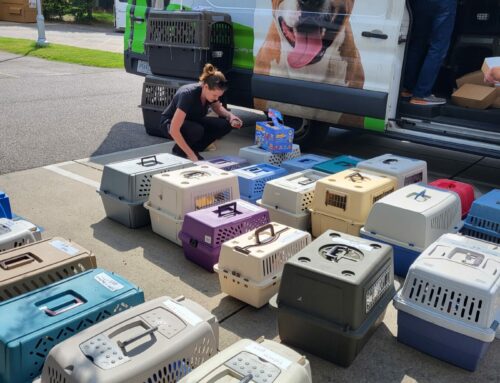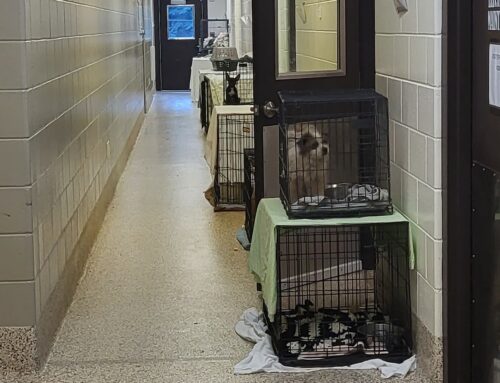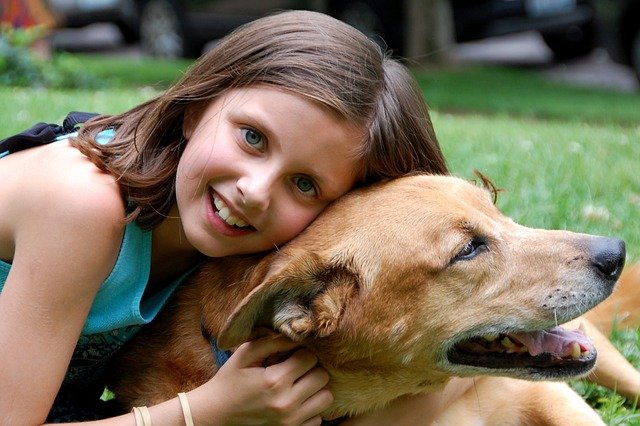
By: Claire Roberson, Communications Director
The Humane Society of the United States reports that 51% of all dog bites occur to children. We see this often at the SPCA Albrecht Center, whether it’s a new adoptee that didn’t get along with a family’s children or a long-time family dog that turned on a child. Many times, the bite occurred because the parent was not supervising play or did not understand their dog’s body language when interacting with their kid. And, unfortunately, the result is often times euthanasia of the pup. If you are welcoming a new baby to your home with a pet or are interested in adopting a dog into your family with children, it’s crucial to understand the best way to gradually acclimate your family to the changes and avoid becoming a part of this staggering statistic.
In the first scenario, introducing your baby to your dog can feel daunting. You’re already exhausted and are getting used to a new routine with your new child. However, your pup was there before the new arrival, so taking these steps early will ensure a positive experience for everyone in the family, including your companion.
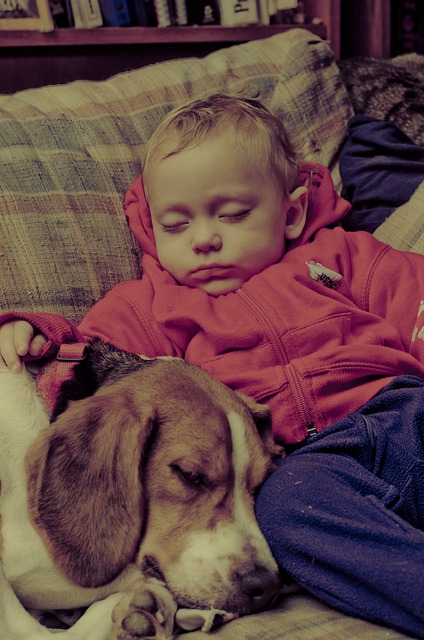
Begin decorating and rearranging long before your baby arrives to give your pet time to understand their new environment. Establish a special, private place for your companion. A place with all of their favorite things, where they can feel safe and get away from the hustle and bustle of their new life. Spend quality time with them in this new space. Now is also the time to work on basic commands with your dog to ensure a safe environment for the new baby.
Congratulations! Your baby is finally here! But, wait. Before you arrive home with your new addition, ask someone to take home something the baby wore in the hospital. Allow your pet to investigate the new smell before bringing baby home. Be aware of the way you talk to your pet when they’re around your baby. Are you constantly telling them “don’t,” “stop,” “down?” This is a quick way for your dog to associate negative feelings when baby is around. If your pet is demonstrating undesirable, attention-seeking behaviors, simply ignore them until they calm down.
In the second situation, you may be considering bringing a new dog into your home with a baby or kids. If you are adopting from a shelter, giving them time to adjust to their new surroundings can already be a challenge, but including children into the mix requires even more care. However, dogs have proven to enhance the lives of children by boosting self-esteem and helping them learn empathy and responsibility, so the payoff can be rewarding. (Photo Source: AKC)
The best place to start is to always evaluate your lifestyle and living situation to best find a companion that fits into that. You can check out the SPCA Albrecht Center’s ‘Puppy, Kitten, or Adult’ and ‘Things to Consider’ page as a guide to better understand if a new pet is the best move and, if so, what kind of breed, age, etc. would be best for your home. If you decide to adopt, the SPCA Albrecht Center is happy to set up a meet and greet between your family and our potential adoptees to make sure the pet you pick fits into your family.
Side note: “As a general rule, if your child is under 6 years old, it’s best to adopt a dog that’s over 2 years old (Dumb Friends League).”

Knowing your dog’s body language and the ways they try to communicate stress is also incredibly important. With just a little online research, you can feel confident knowing how to read your dog’s signals and prevent a possible bite.
No matter what, choosing to have a companion is a decision that shouldn’t be taken lightly, especially in a growing or already established family. By taking the time and having the patience to best acclimate new arrivals – whether a baby or pet – you are guaranteeing a beautiful, harmonious life for your entire family.
Source: “Dumb Friends League” https://www.ddfl.org/resource/children-and-dogs-important-information-for-parents/
An Aiken native and self-proclaimed cat lady, Claire Roberson is the SPCA Albrecht Center’s Communications Director, working in marketing, grant writing and media correspondence. She attended College of Charleston, where she graduated with a degree in Nonprofit Business and interned with Charleston Animal Society, the leader in No-Kill South Carolina. When not working, you can find Claire hanging out with her 18-pound Maine Coon mix, Anakin.
The SPCA Albrecht Center for Animal Welfare is a private, nonprofit, no kill animal shelter in Aiken, SC. The SPCA also operates a local Thrift Store (“Where Shopping Saves Lives”), a public, affordable Veterinary Care Center & a Dog Park. It is our mission to improve the lives of companion animals by rehoming abused, abandoned, and neglected pets while fighting for their well-being through vigorous legislative efforts, humane education, and by offering affordable veterinary care for all.
WANT TO SUPPORT OUR HOMELESS ANIMALS?

